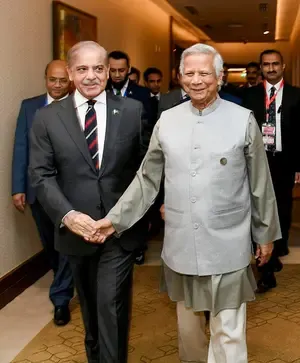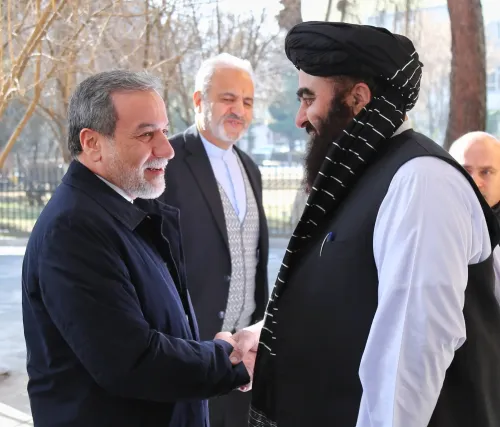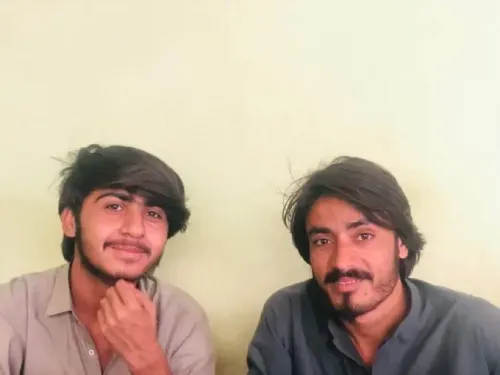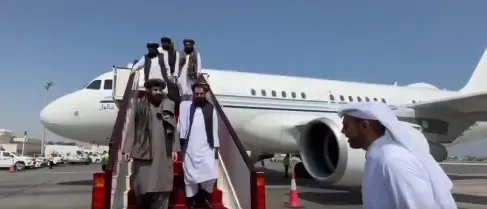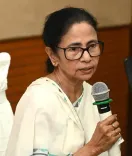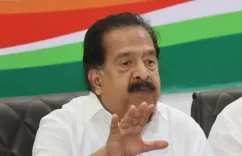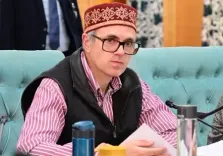Are July Fighters in B'desh Planning Nationwide Roadblocks to Demand Justice?
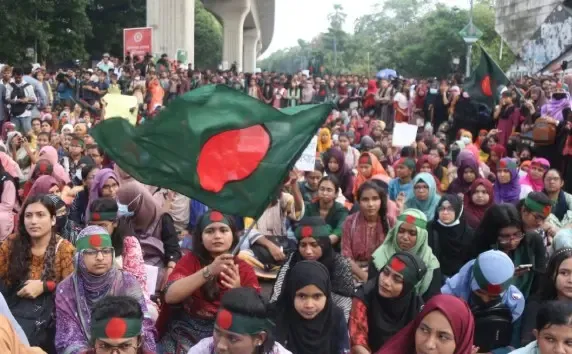
Synopsis
Key Takeaways
- July Fighters demand recognition for victims of protests.
- Highway blockades planned for nationwide enforcement.
- Violence erupted during protests near Parliament.
- Government faces criticism for police response.
- Political tensions continue to escalate in Bangladesh.
Dhaka, Oct 18 (NationPress) Amid rising tensions related to the signing of the July Charter, a coalition of demonstrators in Bangladesh, known as ‘July Joddha Sangsad’ (July fighters), has declared plans to obstruct all major highways nationwide this Sunday in pursuit of their three key demands, as reported by local media.
Their demands consist of official recognition for those who lost their lives in the July 2024 protests; acknowledgment of the injured as ‘July warriors’; and a comprehensive plan for the rehabilitation of the families affected, alongside legal aid for those injured.
In the backdrop of a boycott by several political factions, including the National Citizen Party (NCP) and four leftist groups, the July Charter was signed on Friday by the Chief Advisor of the interim government, Muhammad Yunus, and various political leaders.
During a press conference in Dhaka, Masud Rana, the chief organizer of ‘July Joddha Sangsad’, announced the impending blockade after confrontations between protestors and police near the Parliament complex, where they had been demonstrating against the July Charter's signing.
“We have been attacked. To retaliate and push for our three-point demands, we will implement a blockade on highways across all districts and cities from 2 PM to 5 PM on Sunday,” quoted Masud in the Bangladeshi Bengali daily ‘Jugantor’.
Masud accused law enforcement of assaulting their ‘peaceful sit-in’, stating, “We were conducting our demonstration peacefully at the Parliament gate. Administrative officials had engaged with us, and we had assured them that our program would proceed without disorder. However, instead of opening a dialogue, they unexpectedly attacked us.”
On Friday afternoon, violent confrontations erupted between police forces and demonstrators at the Parliament grounds just hours before the July Charter Signing ceremony, resulting in numerous injuries.
Inspector Faruk, overseeing the police outpost at Dhaka Medical College Hospital (DMCH), confirmed that 36 individuals involved in the July protests were injured and required treatment at DMCH.
Reports indicate that as protestors attempted to gather and assert their demands, military and police personnel obstructed them at the Parliament gate, igniting violence.
In response, police utilized baton charges and discharged three rounds of sound grenades to disperse the crowd.
Subsequently, protestors retaliated by vandalizing police vehicles, including a car and a bus, and setting fire to temporary structures, control rooms, and furniture set outside the Parliament for the July Charter Signing Ceremony.
The protestors issued a stern warning to the interim government, asserting, “If our blood must be shed again, this administration will not endure either,” referencing the previous year’s protests that led to the fall of the former Awami League government, which allowed the Muhammad Yunus-led interim government to rise to power.
Bangladesh continues to face widespread protests and escalating lawlessness following the ousting of the democratically elected Awami League government, previously led by former Prime Minister Sheikh Hasina, amid violent demonstrations last year.

